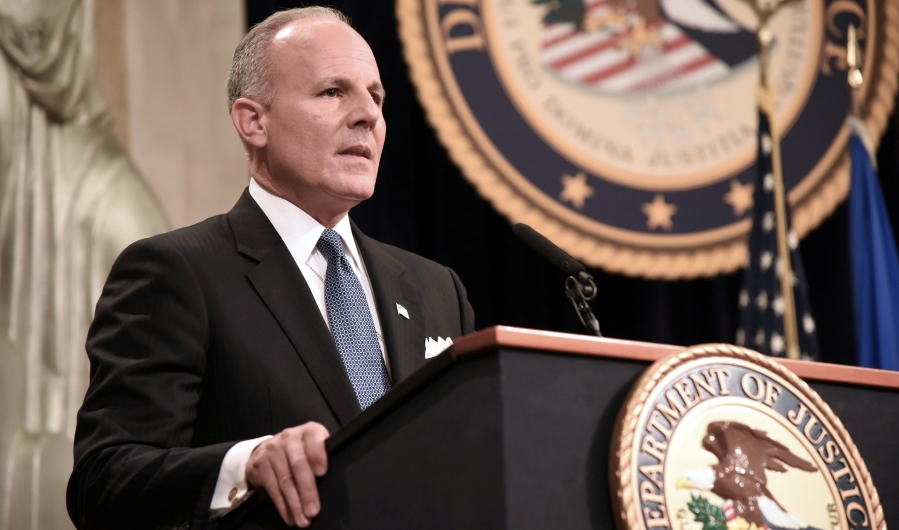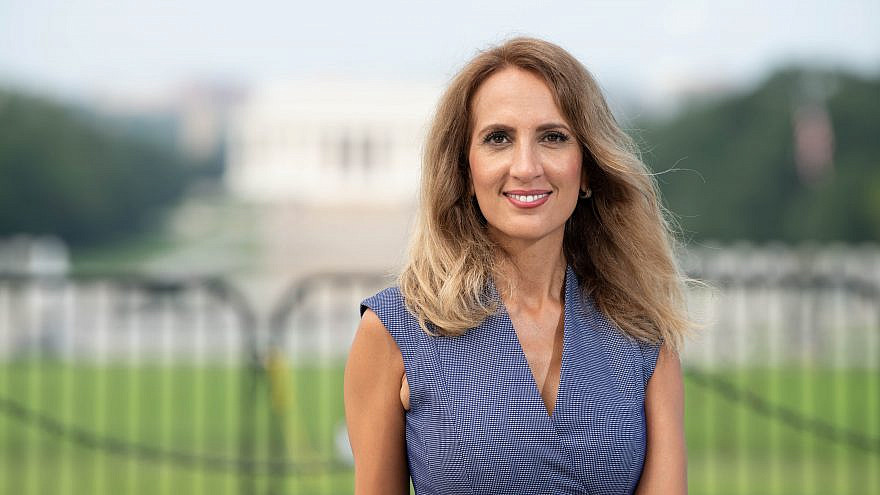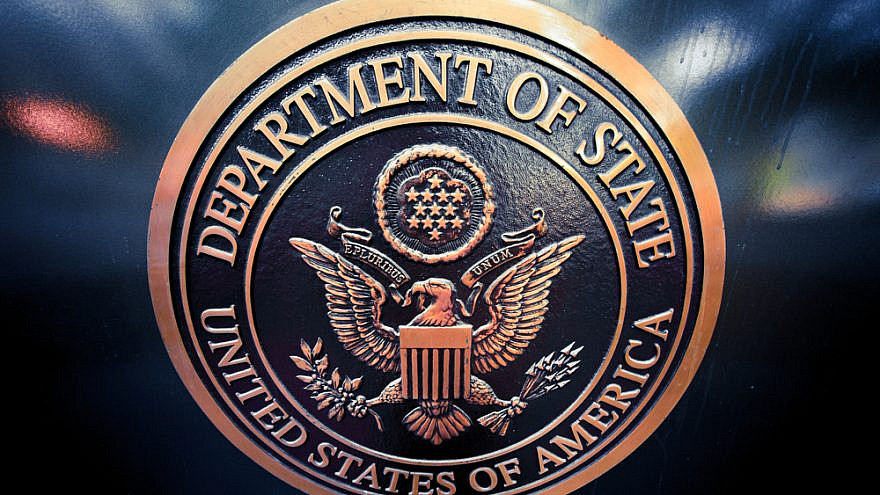With anti-Semitism on the uptick, the role of the next U.S. Special Envoy to Combat Anti-Semitism will take on more importance than ever. However, fault lines have been emerging within the Democratic Party over how to define and combat Jew-hatred.
According to reports, a number of names have been floated for the next anti-Semitism envoy, including the former longtime head of the anti-Defamation League Abraham Foxman, Holocaust historian and Emory University Professor Deborah Lipstadt, ADL vice president Sharon Nazarian, National Coalition Supporting Eurasian Jewry CEO Mark Levin and former National Council of Jewish Women CEO Nancy Kaufman, among others.
While Foxman and Lipstadt have the backing of mainstream pro-Israel Democrats, Kaufman has been touted by progressives as their favored choice. The anti-Israel group IfNotNow, which supports the BDS movement, has endorsed Kaufman’s nomination.
Ellie Cohanim, who served as Deputy Special Envoy to Monitor and Combat Anti-Semitism during the Trump administration, told JNS that the names being floated for the next envoy reflect the emerging split within the Democratic Party over the issue of anti-Semitism.
Indeed, Kaufman stated in an interview with The Forward that she finds the IHRA definition an “interesting tool,” but opposes codifying it into law. Kaufman herself has drawn criticism in the past as the head of the National Council of Jewish Women for supporting and working alongside the Women’s March, whose co-founders had ties to anti-Semite Louis Farrakhan, head of the Nation of Islam. In 2017, she signed a letter in defense of political activist Linda Sarsour, who has been known for her anti-Israel stances and support for BDS.

‘Global anti-Semitism stems from major three sources’
The split over the next Envoy reflects a larger gap emerging between progressives and the Jewish establishment over how to best define and fight anti-Semitism.
In particular, Cohanim noted that a major emerging fault line is over the International Holocaust Remembrance Alliance (IRHA) working definition of anti-Semitism.
“Nowhere is this split more evident,” she said, noting that it was a key priority when she and Special Envoy Elan Carr were in office. “Where I believe the other candidates would all support more countries and institutions adopting the IHRA working definition, Kaufman has stated that it should not be codified into law.”
The United States, a member of the IHRA, has used the definition since it was adopted in 2016. The Trump administration expanded its use to the U.S. Department of Education and in 2019 formally directed federal agencies to consider using the definition.
Shortly after taking office, the Biden administration also adopted the IHRA definition.
However, progressives have become increasingly critical of the IHRA definition, which they accuse of silencing criticism of Israeli government policy. In particular, they have singled out the IHRA definition over its assertion that anti-Zionism is anti-Semitism.
In January, 51 members of the Conference of Presidents of Major American Jewish Organizations voted to endorse the IHRA definition, but notably, a couple of the umbrella group’s more progressive organizations, Americans for Peace Now and the Workers Circle, did not. These groups were part of a number of other progressive groups that also include J Street, the New Israel Fund and T’ruah, which also spoke out against the IHRA definition.
In recent weeks, progressives have introduced two other definitions as alternatives to the IHRA: the Nexus document and the Jerusalem Declaration. Critics contend, however, that these definitions would allow anti-Zionists to advocate for the elimination of Israel without being accused of anti-Semitism.
At the same time, some Democratic lawmakers are pushing the Biden administration to adopt the alternative definitions.
Cohanim said that it’s important for the next Envoy to understand the sources of anti-Semitism.
“I would hope that the next anti-Semitism Envoy would acknowledge that global anti-Semitism today stems from three major sources: radical-right white supremacists; radical-left anti-Zionists; and radical Islamists. In our administration, we addressed all of these sources of Jew-hatred and refrained from politicizing what should be a sacred subject—that is, anti-Semitism,” she said.
“Too often in Democrat and leftist circles, we witness a singular focus on white supremacy to the exclusion of radical leftist anti-Zionism and radical Islamist Jew-hatred. This politicization of anti-Semitism ultimately puts Jewish lives at risk.”

‘The struggle against anti-Semitism is increasing politicized’
Holly Huffnagle, U.S. Director for Combating Antisemitism at the American Jewish Committee, told JNS that while the IHRA definition is not the only tool in their global kitbag, it is a “necessary and important” one that was embraced by the Obama administration, and now, the Biden administration.
“While we have witnessed some pushback from progressives in the U.S., it is important to remember that Spain, Sweden and other left-wing governments critical of Israel have adopted the definition in full and understand that it does not restrict their criticism of Israeli policies,” she said.
Huffnagle explained that the working definition of anti-Semitism, which even predates the IHRA itself, came about out of genuine need, especially in Europe.
“In the early 2000s, there was a resurgence of anti-Semitism in Europe, where Jews were targeted as ‘agents of Israel,’ and it was not called ‘anti-Semitism,’ as though anger towards Israel somehow explained harassing Jewish worshippers or threatening Jewish schoolchildren—killing them even, as we horrifically witnessed in Toulouse in 2012,” she said.
As such, data collectors and monitors, law enforcement, prosecutors and judges did not have a universal definition to use to understand all forms of anti-Semitism, noted Huffnagle.
“The Special Envoy’s office, whose mandate is to combat acts of anti-Semitism and anti-Semitic incitement that occur in foreign countries, witnessed firsthand the utility of the definition,” she said, adding that today is used by nearly 30 countries, in addition to hundreds of public and private institutions.
“The Special Envoy should continue to work to ensure the definition is used judiciously as an educational tool to raise awareness of the multifaceted nature of anti-Semitism,” she said.
With the Biden administration recently marking its 100 days in office, there is a growing push for the President to fill the position. In fact, a bipartisan group of senators urged him last week to quickly nominate the next Envoy, citing the uptick in anti-Semitic attacks worldwide.
The next anti-Semitism Envoy will also have an expanded role in the U.S. State Department.
Congress passed a bill at the end of last year that elevated the Special Envoy position to the rank of a Presidentially appointed, Senate-confirmed ambassador who reports directly to the Secretary of State.
“The new Special Envoy will be the first to serve in an ambassador rank position, requiring Senate confirmaation. We strongly believe that in order to effectively combat all forms of anti-Semitism, it must be fought on a nonpartisan basis, addressing manifestations across the political and ideological spectrum,” Sacha Roytman Dratwa, Executive Director of Combat Anti-Semitism Movement, told JNS.
“In a polarized world, the struggle against anti-Semitism is increasingly politicized, not just in the United States. The next Special Envoy will have to navigate the political intricacies in allied and hostile countries alike,” he added.
Anti-Semitism in Europe, for example, has taken on many different forms, depending on the country. On Sunday, thousands took the streets across the world to voice their outrage over the French judicial system’s decision on the case of Sarah Halimi, a 65-year-old Orthodox Jewish woman who was murdered by her Muslim neighbor in 2017.
“In the United Kingdom, systemic anti-Semitism has primarily emanated from the far-left. In France, murderous anti-Semitism has primarily been carried out by individuals with a radical Islamist viewpoint, and in Germany, the attack on the Halle synagogue was carried out by a far-right Neo-Nazi,” said Roytman-Dratwa. “This is why the IHRA definition as it stands is such an important tool for the incoming special envoy.”


























